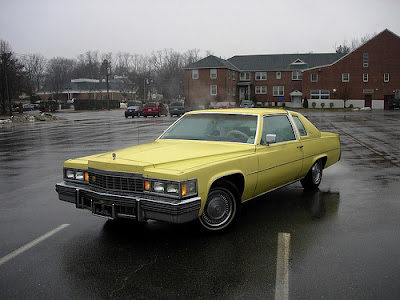Having achieved the sound stability that comes with sticking to the same career path and limiting my job hopping to just an occasional bounce now and then, I am now finally beginning to benefit from the fruits of my fortitude. At last, aside from the obligation of showing up to work about 49 weeks out of the year, I am generally at will to do and have whatever I want.
I often feel intense gratitude for the freedoms and luxuries I now enjoy—admittedly, sometimes directed toward myself for the choices that have put me on this course. During these moments of satisfaction, I also often think back to what, in my household, are referred to as the ‘bad old days.’ Writing questionable checks at 9:55 p.m. at the grocery store, selling back used CDs at an absurd loss, and driving one beat-up vehicle after another into the ground. Etcetera.
The mid-nineties were, unmistakably, the most unstable. My impractical dreams of becoming a costume designer launched us into a near-beggarly existence, and we were forced to take pretty much anything that was offered—including the mixed blessing of a 1977 banana-colored Cadillac DeVille that my dad had had his fun with and then cast, most philanthropically, in our direction.
 |
| This is pretty much it; except ours had a black roof accent. |
While it did promise to get us from here to there, it did so in an unwieldy, Godzilla vs. the world sort of way. Its massive yellow build and matching, floor-to-ceiling leather interior assured that incognito was never an option. And its mushy steering and rear-wheeled propulsion meant that safety was occasionally a question. Ungrateful as it sounds, were it not for the fully-functioning 8-track player mounted in the center of the dash, it would have been difficult for us to have any fondness for it at all.
In lean times, thrills have to come cheap, which made scouring thrift and resale shops for musical curiosities one of the more exciting diversions we had going on. Though the demise of the Stereo 8 format prevented anything later than 1980 from ever being found, several priceless discoveries were made that forever changed the panorama of our musical preferences.
Among them, unknown-to-us classics like Joan Baez’s 'Ballad Book,' which introduced us to this:
And '24 of Hank Williams' Greatest Hits'—a collection of songs that gave Country enough soul to permit it to have a place in our sensibilities.
And then there was the totally weird, but somehow kind of cool 'Cop Show Themes' by Henry Mancini.
Eventually, we did wear out the player, and, after that, the only signal the feeble receiver could tune in was Blue Lake Public Radio, which was primarily classical at the time. Proof that gifts sometimes come in totally unexpected packages.


